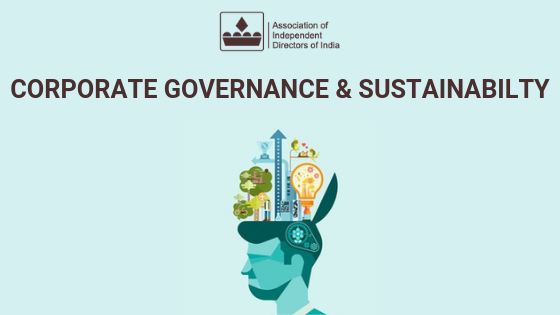Sustainability has been a buzzword in the corporate sector and has found its dominance as an essence of providing direction to an organization’s diverse efforts. It has been answering some serious questions when it comes to analyzing the effects that a firm’s practices will have on its co-existing environment and ultimately on its economies. With corporate sustainability in place, a business can aim for providing long term value to its stakeholders by means of effective implementation of a business strategy that has sound economic, environmental, ethical, social and cultural dimensions.
The board members and all the other members of an organization must realize the importance of Corporate Sustainability, owing to the fact that it provides the firm with positive longevity. When one operates in highly aware surroundings, where social and environmental aspects have gained high priority, only market-led actions just won’t suffice. Plucking the ‘low-hanging fruit’ is now a less efficacious practice which will ultimately have opposite implications in the future.
When we dig deep into the subject of sustainability, we realize that it stands on three major pillars. These are:
- THE SOCIAL PILLAR
- THE ENVIRONMENTAL PILLAR
- THE ECONOMIC PILLAR
SOCIAL PILLAR talks about an enterprise being a good community member which must take the approval of all its stakeholders before it commences with something that will have effects on them. This attaches to it the concept of Social Responsibility for creating value.
ECONOMIC PILLAR is where the firms feel that they hold a firm ground. This pillar does not accommodate profit as the centre of attraction but consists of risk management and proper governance in order to strengthen this pillar.
ENVIRONMENTAL PILLAR is the one getting the most attention lately, where businesses strive hard to reduce their carbon footprints, usage of natural resources, and ultimately the pressure on the environment. It is pretty evident that companies that have a positive impact on the planet, tend to have a positive financial impact. One major example of this is Walmart, which stressed its environmental responsibilities by packaging goods from recycled or reused materials.
Unlike the traditional approach, the modern approach calls for a contemporary model for sound corporate governance, due to the fact that the spectrum has evolved extensively with new aspects joining in. This eventually leads to merging roads of organizational goals and ethical practices.
However, many directors still fail to identify how the block of sustainability fits into their organization. A lesser percentage of organizations have a sustainability head who reports to the board. The boards must understand the prominence that sustainability holds and the ways in which it can affect future outcomes.
While analyzing and restructuring its sustainability policies, a firm can thrive from the following approach:
- REVISIT the company’s statement of purpose and existence, where they may answer what value creation means to them, how the world is changing and how it affects them, and most importantly how well are they planted and where they actually stand on the road of social progress.
- AUDIT the present sustainability practices and screen the loopholes. The focus must be placed on how to be in line with the present and future needs.
- ARRANGE a meeting of all the board members to gain insight into the company’s definition of sustainability. At this stage, the loopholes should be widely discussed and a plan of action should be devised.
- ORGANISE the apparatus required and get the right spots filled with the right type of practices, people and knowledge.
- EXPLORE the various areas of interest regularly and check for the variations.
THE UNILEVER SUSTAINABLE LIVING PLAN- SETTING AN EXAMPLE
Unilever leads by example in proving the role of sustainability. With its Unilever Sustainable Living Plan in motion, it drives the focus of the world towards how it aims to bring a change by supporting the UN Sustainable Developments Goals (SDGs). The Unilever Sustainable Living Plan sets out to separate its growth from the environmental footprints while increasing the positive social impact. This plan has three major goals, the first being to improve health and well-being for more than 1Billion people, second is to reduce their environmental impact by half and third is to enhance the livelihood for millions. All this is being done with due consideration towards social, environmental and economic performance, and goals of the organisation. This move by Unilever should act as a yardstick for all.
DIGITAL GOVERNANCE: An area of constant deliberation
The digital era and the revolution of the internet have definitely opened doors to new and easy ways of controlling a business and its operations, accountability and responsibilities. With the emergence of AI and Robotics, a broad spectrum has been evolved. But on the same page, this digital model carries along with various possible ill effects by means of unethical hacking and cybercrimes. One major example of such technologies is Blockchain. Being a digital ledger of cryptocurrency, it is highly prone to hacking and other illicit activities to cause financial damages and misinterpretations.
Various questions remain unanswered when the scope and importance of digital are attached to corporate governance. These pertain to how the sector of corporate governance will take shape when the digital tag is put behind it, will this increase trust or decrease it, is it a good time to turn digital, how the different stakeholders see it and lots more. It will become more and more important to answer these questions as now corporate governance has become a complex term with the introduction of modern problems pertaining to the societal benefits. It now extends to areas far away from the operations of a business.
Therefore, it would be fitting to conclude by stating that “Sustainability” is worthy of the deliberations surrounding it, and that it will have a defining role to play in bolstering Corporate Governance Framework across varied Corporate Landscapes around the world.

